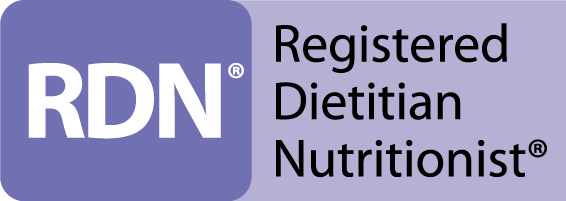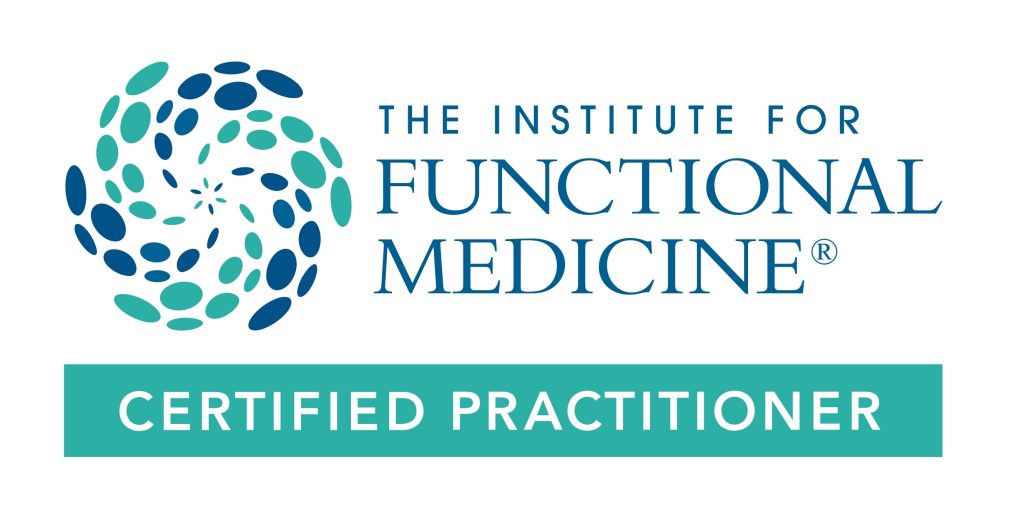First and foremost I would like to disclose that under no circumstance I am trying to sell or advertise some special supplements and or promote and support some company to gain financial interest. The purpose of this guide is to bring awareness of the possibility of contamination of your supplements with a multitude of pharmaceuticals not disclosed on the label that might result in some adverse effect on your body and well being, as well as to provide tips and guidance for you to be able to make your own informed decision on what products to buy. As a dietitian, functional dietitian, nutritionist i shall always recommend and encourage the use of food and lifestyle as medicine first, however, i am also aware that sometimes the use of proper supplements to adress deficiencies, proper metabolic functions might be the right intervention that will show results. Now that this is out of the way, let us start: I shall start with current regulatory guidelines surrounding the supplement industry, then review research regarding purity and safety of supplements. And finish with most important tips to keep in mind when out shopping for your next supplement if that is in your practice and lifestyle choice.
Did you know that over 70% of Americans take some form of dietary supplement every day? (1)
That means out of 10 people standing in line at the checkout register, 7 are going to buy some form of supplement. The supplement industry is currently big business, with a gross of over $28
billion. Supplements do not need to be registered or approved by the US Food and Drug
Administration (FDA) prior to production or sales.
One of the consequences of this weak FDA regulatory oversight is poor quality. Multiple FDA
inspections of manufacturing facilities have reported violations of good manufacturing practices in over 50% of the facilities inspected. These violations include unsanitary conditions, lack of product specifications (meaning listing full ingredient list in the label) as well as adulteration of the purity of the supplements with prescription and over the counter medications also not reported on the labels.(2)
Even though the FDA has issued formal guidance on current Good Manufacturing Practice(GMP)
to ensure that processes for preparation, packaging, labelling, and storage of supplements and ingredients are documented and meet specifications to ensure purity, composition, and strength,
safety issues continue. (3)
Many research studies have been done over the years investigating purity, composition and contamination of oral supplements. The findings are rather unnerving and scary if I may say so, and to my surprise ongoing.
For example, in 2018, a quality improvement study published in JAMA looked at data extracted
from FDA`s Center for Drug Evaluation and Research, Tainted Products Marketed as Dietary
Supplements database from 2007 through 2016. (4) Data analysis was conducted from
February 2017 to June 2017. Companies who had received warnings from the FDA for producing and selling tainted products were evaluated. It was found that even after issued warnings from the FDA, there was no compliance in assuring that the products were pure, and active pharmaceuticals continued to be identified in dietary supplements.
Most common adulterants used were sildenafil (generic Viagra) for sexual enhancement, found
in 47% of the inspected supplements; sibutramine (Meridia) for weight loss supplements found in 84.9% of the supplements which has been discontinued in the U.S in 2010, (that is 8 years prior
to when the study was done) because of safety concerns. Third most common type of adulterant was found to be synthetic steroids or steroid-like
ingredients for muscle building supplements found in 89.1% of the supplements tested. There were 28
products named with 2 or 3 warnings more than 6 months apart. Of these products, 67.9% were reported to contain new unapproved ingredients in the second or third warning, consistent with the assumption that the FDA found the product to be adulterated more than once. (3) From 2007 through 2016, 776 adulterated dietary supplements were identified by the FDA and 146 different dietary supplement companies were implicated. So this means that even upon recognition of adulteration by the FDA, some “supplement companies continue to do nothing to improve their practices to assure safety for their products, and go to the extent to even add new unapproved ingredients instead of following guidelines for good manufacturing practices(GMP)”.
In 2016, administration study for contamination was done after an athlete was tested positive for
WADA (World Anti-Doping Agency) prohibited substance (5). The substance in question was diuretic, commonly used for treating high blood pressure. The athlete disclosed the use of only over the counter anti-inflammatory- NSAID`s prior to his competition. Analytical procedures using liquid chromatography/tandem mass spectrometry were used to analyze pre and post-administration HCTZ (diuretic) spiked placebo tablets as well as the drug provided by the athlete and the corresponding sample of the manufacturer. The blank urine pre-administration samples returned negative test results for diuretic presence, while the post-administration specimen was found to be positive, as well as both tablets analyzed- the one provided by the athlete and the one from the manufacturer tested positive for the HCZT. Now, please bear in mind, this is over the counter NSAID being contaminated with a diuretic medication used for treating high blood pressure, and maybe just consider what effect it might poze to a healthy individuall with no abnormalities in the blood pressure, and if and when it would cause their BP to decrease, how much, and how that would affect that individual.
Over a 9 year period, from 1999-2008, multiple groups have analyzed nutrition supplements by
using mass spectrometric methods for adulterations and contamination with doping substances.
Results showed presence of PROHIBITED STIMULANTS such as ephedrine, caffeine,
methylenedioxy-met-amphetamine (MDMA, ecstasy) and sibutramine (Meridia), which were
NOT DECLARED on the labels. (7)
In 2001, 12 brands of over the counter anabolic androgenic supplements (lab-made testosterone supplements) commonly used for muscle build-up and strength were analyzed via high-pressure
liquid chromatography. The results showed that 11 out of the 12 tested supplements did not meet the labelling requirements set out in the 1994 Dietary Supplement Health and Education Act, in regards to name and quantity of ingredients present in the supplement. (6) Meaning, 92 % of the supplements in 2001, did not provide what they stated they will on their label.
These mislabeling practices, questionable purity of supplements, undisclosed ingredients as well as adulteration with active pharmaceuticals and contamination are worrisome and should not be overlooked. It is of utmost importance for you to take your time and analyze the supplement before buying it. It might take additional 2-3 even 5 minutes of your time while deciding if the supplement is the right one for you. However, I assure you it will be time well spent. It might
cost extra 5-10 cents per pill; however, the peace of mind you will have and the assurance that the
the product you will consume is pure, not contaminated and spiked with illegal and active pharmaceuticals that might affect your health in an adverse way, is worth every cent of it.
I tried to keep my recommendations to simple, easy to remember, most important and
classified them in 3 steps.
Step 1: Always check for a GMP; NSF Certified or USP Verified logos on the label.
This will give you assurance of the quality of ingredients and products; that the facility
where the product is being produced “follows federal guidelines of Good Manufacturing
Practices to ensure that processes for preparation, packaging, labelling and storage of the
supplement meets standards for safety, purity, and strength”. Meaning if the supplement
label states 100 mg of some active ingredient, that is what you are getting and paying for.
It`s is a guarantee that there will be no additional surprises of contamination and undisclosed active pharmaceuticals and or steroid hormones. If that is the case by following these GMP guidelines, each supplement bottle has a batch number that can be traced and if an issue is present can be addressed accordingly. These logos are usually written in on the side of the label, BUT sometimes are not. A quick web search of the company that produces the supplement in question, whether is GMP Certified or not will
give you all the information you need.
Step 2: Check the Dose and the Number of Servings of the supplement/ Per Day to
get your money worth. Sometimes there will be a cheaper version of a supplement, GMP
produced, however, due to the lower dose of the active ingredient you are after, you might
end up drinking and spending more days to meet the recommendations by your nutrition
and or medical professional.
Step 3: COST: As we all know some of the supplements we need, and or want to buy might cost quite a bit at first sight. Sometimes, buying the most expensive supplement does not guarantee the safety and purity of it all. One always has to refer to step 1 of finding a GMP logo on the products. However, the way I justify some of my purchases is how much it would cost me per day and for how long if I was to buy that particularly expensive supplement.
The way I analyze it is by dividing the total cost of the whole bottle by the number of servings it provides per day. For example, if the cost of a supplement A for example is, let`s say 22 $. The number of servings 60(meaning 1 per day = 60 days projected use).
The daily cost for the next 2 months would be 22$/ 60 days = 0.36 $/per day, or 36 cents
per day. Not bad at all, right. 36 cents for a product that follows guidelines for safe production practices- GMP, is pure with no surprise alterations and pharmaceuticals and is providing whatever nutrient it is we are choosing to use.
I encourage you to start asking questions, anything related to your health and your wellbeing. It is a good start-up practice into regaining control over your health and wellbeing. I find it that information is a powerful tool and can be most definitely used to one`s benefit if used properly, modestly and in the right way. Supplements, if used properly, in addition to using real food as medicine, implementing personalized nutrition and lifestyle as daily practices to contribute into achieving and maintaining optimal health, and well being.
Bid you good health,
Biljana Sofronijoska Rece, RDN, LD, IFMCP
This information is intended for informational purposes only. It is not supposed to be interpreted as specific medical advice.
Regarding therapies, diagnosis and or health conditions please consult with your qualified healthcare provider.
References:
1. Ronis MJJ, Pedersen KB, Watt J. Adverse Effects of Nutraceuticals and Dietary Supplements. Annu Rev Pharmacol Toxicol. 2018 Jan
6;58:583-601. doi: 10.1146/annurev-pharmtox-010617-052844. Epub 2017 Oct 6. PMID: 28992429; PMCID: PMC6380172.
2. Marcus, Donald M. “Dietary supplements: What’s in a name? What’s in the bottle?.” Drug testing and analysis vol. 8,3-4 (2016):
410-2. doi:10.1002/dta.1855
3. Bailey, Regan L. “Current regulatory guidelines and resources to support the research of dietary supplements in the United States.”
Critical reviews in food science and nutrition vol. 60,2 (2020): 298-309. doi:10.1080/10408398.2018.1524364
4. Tucker, Jenna et al. “Unapproved Pharmaceutical Ingredients Included in Dietary Supplements Associated With US Food and Drug
Administration Warnings.” JAMA network open vol. 1,6 e183337. 5 Oct. 2018, doi:10.1001/jamanetworkopen.2018.3337
5. Helmlin, Hans-Jörg et al. “Detection of the diuretic hydrochlorothiazide in a doping control urine sample as the result of a
non-steroidal anti-inflammatory drug (NSAID) tablet contamination.” Forensic science international vol. 267 (2016): 166-172.
doi:10.1016/j.forsciint.2016.08.029
6. Green, G A et al. “Analysis of over-the-counter dietary supplements.” Clinical journal of sport medicine : official journal of the
Canadian Academy of Sport Medicine vol. 11,4 (2001): 254-9. doi:10.1097/00042752-200110000-00008
7. Geyer, Hans et al. “Nutritional supplements cross-contaminated and faked with doping substances.” Journal of mass spectrometry :
JMS vol. 43,7 (2008): 892-902. doi:10.1002/jms.1452








